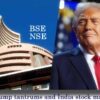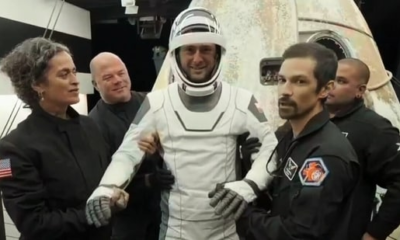India Finds New Diplomatic Comfort in Canada Amid Strained US Ties
Prime Minister Narendra Modi’s quiet refusal of an invitation from Donald Trump has turned more than a few heads in the global diplomatic space. Rarely does a world leader decline a personal invite from the US President, but Modi’s move was not just a scheduling decision—it reflected a growing discomfort in India-US ties and a notable warming of relations with Canada.
The symbolic rejection came as Modi visited Canada for the G7 Summit, where he was hosted with warmth by Prime Minister Mark Carney. Canada described Modi’s presence as a “great honour,” signaling a dramatic shift in tone after two years of frosty silence triggered by the Trudeau era. In fact, this visit marked the beginning of a much-anticipated reset between India and Canada.
Under Carney’s leadership, Canada appears keen to mend fences. Despite objections from pro-Khalistan groups, Carney invited Modi to the G7, signalling a break from his predecessor’s approach. Since taking office, Carney has maintained distance from Khalistani hardliners and, during his bilateral meeting with Modi, agreed to restore high-level diplomatic representation. Both countries committed to sending high commissioners back to each other’s capitals for the first time since 2024, and pledged to resume stalled trade talks.
Importantly, Carney refrained from referencing the 2023 assassination of Khalistani extremist Hardeep Singh Nijjar—a flashpoint that had deeply fractured India-Canada relations. When asked about it, Carney acknowledged the existence of an ongoing judicial process and chose not to comment further. On the same day, Canada’s top intelligence agency confirmed for the first time that extremist elements were misusing Canadian soil to orchestrate violence targeting India—a stark contrast from the silence of the Trudeau government.
This diplomatic thaw offers India a strategic win. Canada is one of India’s largest sources of student migrants and foreign workers, and improving ties serves mutual economic interests. The shift is also timely, as New Delhi faces increasing unpredictability from Washington.
The trust deficit between India and the US has widened under Trump’s renewed presidency, despite initial hopes of rekindling the warmth seen during his first term. Relations started to cool when Trump repeatedly accused India of being a “tariff abuser” and even announced reciprocal tariffs just before meeting Modi—moves that undermined the optics of friendly relations. Although India made some duty concessions, Trump escalated trade tensions by imposing a 26% import duty on Indian goods—a decision now paused but still looming.
Worse, Trump’s repeated attempts to hyphenate India with Pakistan—especially following the deadly Pahalgam terror attack—have irked New Delhi. Despite Modi being described as a “great friend” by Trump, India found itself diplomatically isolated at the UN Security Council, failing to get either Pakistan or the terror group The Resistance Front named in a formal statement.
Adding to the friction, Trump has publicly claimed credit for brokering a ceasefire between India and Pakistan—claims India has strongly rejected. Modi even clarified in a call with Trump that the US played no role in Operation Sindoor and that trade was never used as leverage. Despite this, Trump continued to repeat the claim, boasting of his “mediation” at least 14 times in recent weeks.
Then came the last straw: Trump’s high-profile lunch meeting with Pakistan Army Chief General Asim Munir at the White House. The invite—on the same day Modi was scheduled to visit—risked placing India and Pakistan on the same diplomatic stage, something New Delhi has long sought to avoid. Modi’s subtle refusal was a strategic move to deny Trump a PR moment that could imply parity between the two South Asian rivals.
Officially, India cited a pre-scheduled visit to Croatia as the reason. But the implications were clear. In Washington, even some insiders raised alarms. Michael Rubin, a former Pentagon official, warned against cozying up to Pakistan, calling it a “two-faced” ally. Similarly, General Michael Kurilla’s praise for Pakistan as a “phenomenal partner” in counter-terrorism further added to India’s diplomatic unease.
As friction with the US deepens, India’s warming ties with Canada come at a crucial moment—offering a welcome alternative on the world stage and underscoring that in today’s complex geopolitics, trust counts more than tradition.
IT.




























